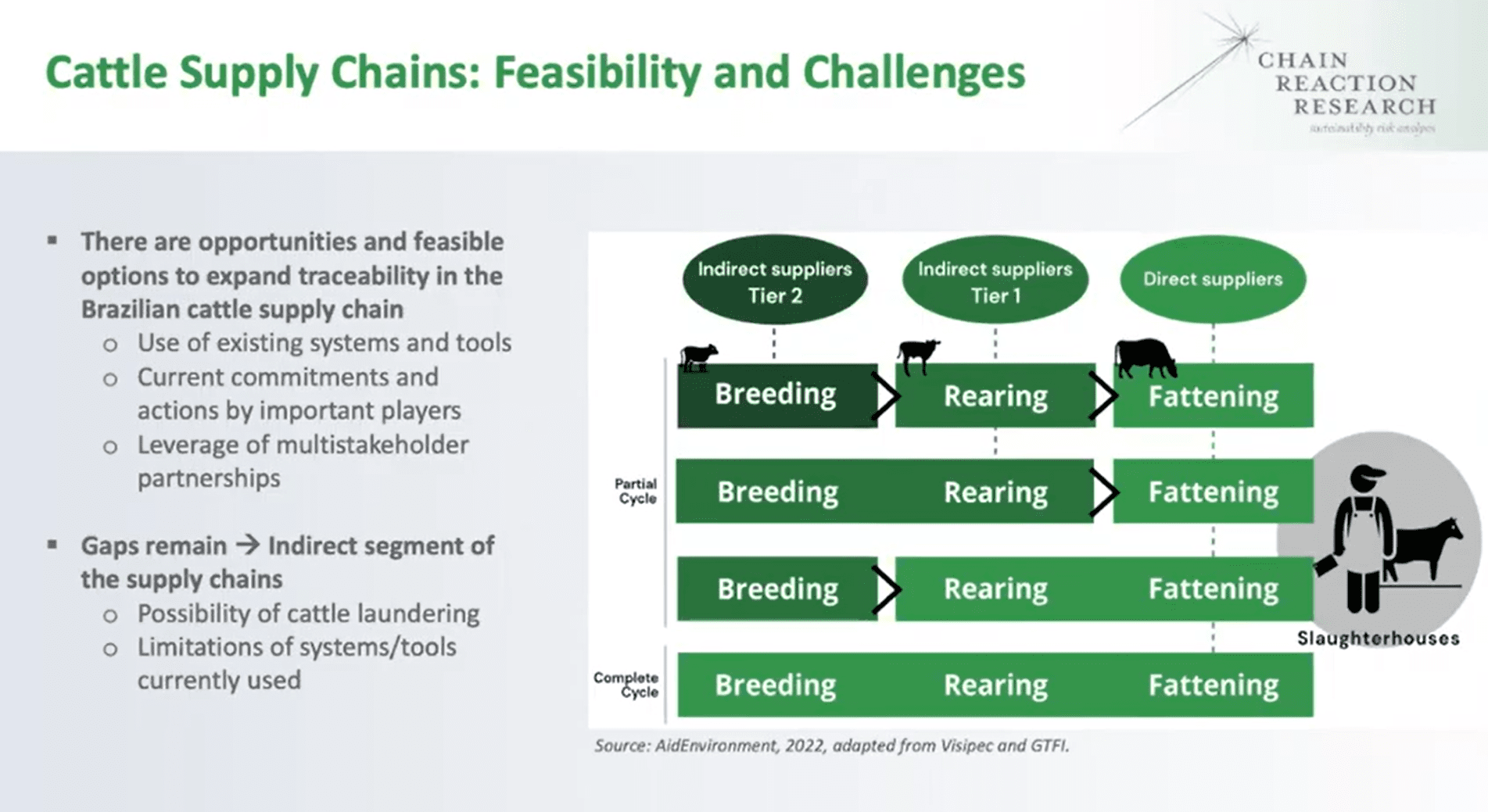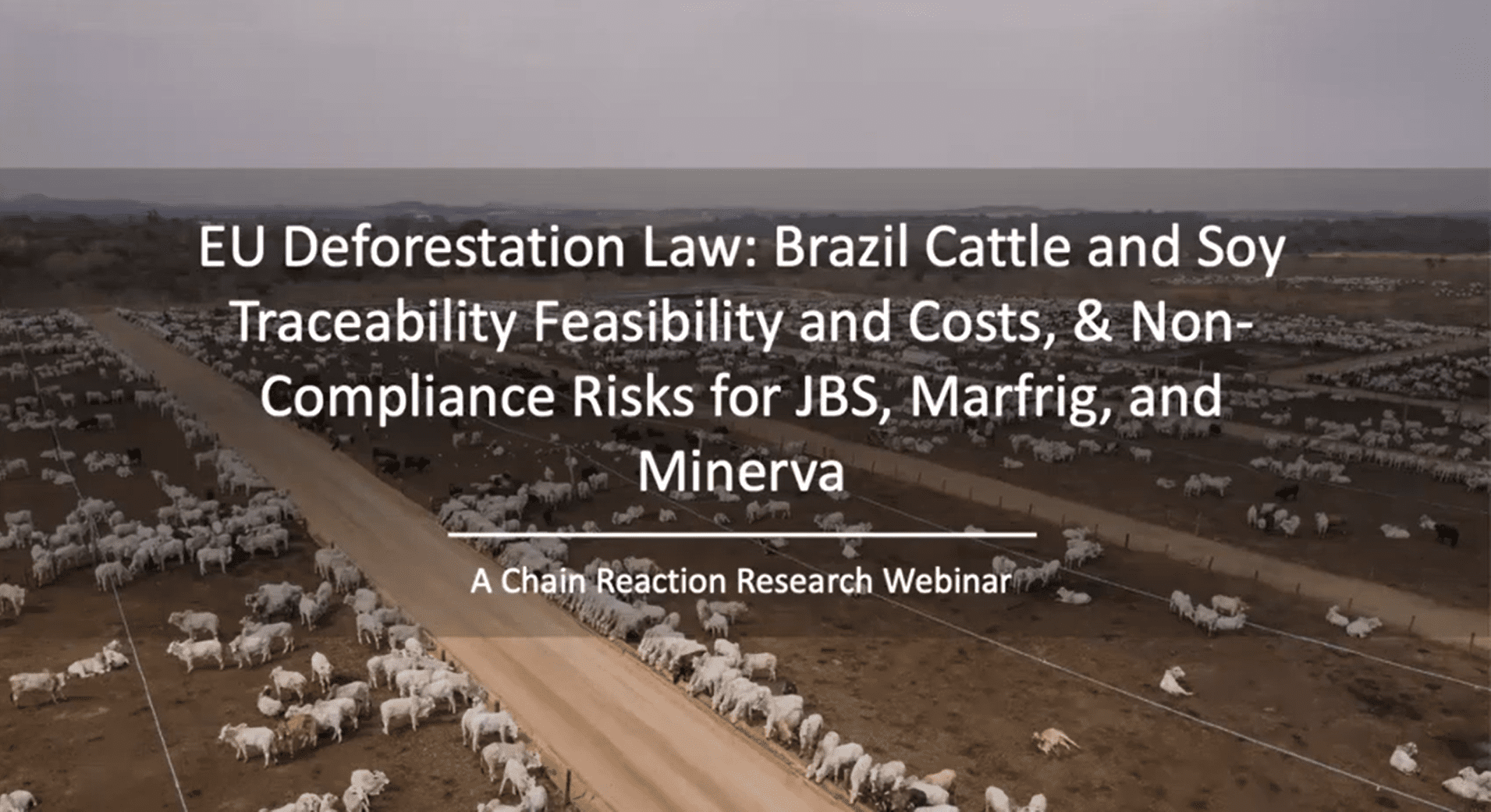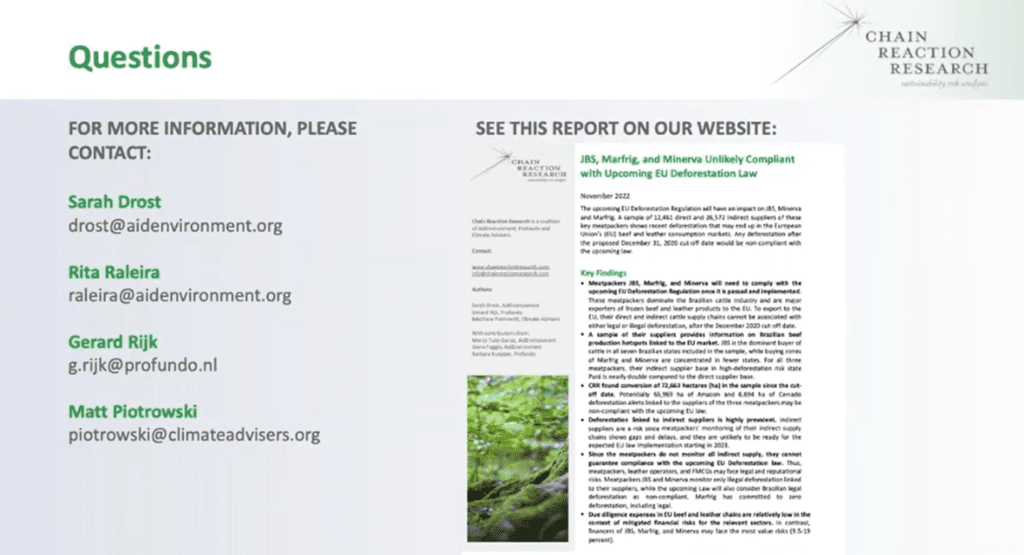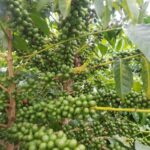Takeaways from our webinar on soy and beef traceability and compliance with the EU Deforestation Regulation

As part of the Chain Reaction Research consortium, AidEnvironment co-organized a webinar on Thursday, December 1, dedicated to the findings of two recently-published reports, assessing the EU Deforestation Regulation and its impacts on stakeholders within Brazilian cattle and soy supply chains. The webinar had a total of 153 attendees joining from 24 countries. The attendees represented a diverse pool of organizations, including academic institutions, industry groups, non-governmental and civil society organizations, financial institutions, and UN agencies.
The reports focused specifically on Brazil because the country is the largest EU supplier of several key soy, beef, and leather products and derivatives that will be covered by the EU Deforestation Regulation. Brazil is therefore a country where the impact of the upcoming EU Regulation will likely be significant.
In the first report, focused on the traceability of soy and cattle products up to the plot(s) of land used for production. The main findings are that there are good opportunities and feasible options to expand traceability to the entirety of soy and cattle supply chains. Specifically, there are already zero-deforestation agreements in place that include traceability; public data available to facilitate product tracing; and several large industry players, in both the soy and cattle sectors, have already made commitments to and are currently working towards full traceability. Nonetheless, it was also emphasized that traceability is still a work in progress in these supply chains and that important gaps still need to be addressed. Indirect supply streams and the complex architecture of soy and cattle supply chains pose challenges to traceability, in addition to existing limitations of the data and tracing methods that are currently available. In the case of soy, the existence of different national vegetation protection requirements for properties in the Amazon and the Cerrado also creates extra hurdles to traceability and adds to this mix.
The webinar then covered a more concrete discussion of the EU Deforestation Regulation’s impact on Brazil’s three largest meatpackers: JBS, Minerva, and Marfrig. Looking at the deforestation footprint of these large meatpackers, the second report found that these companies would not be compliant with the requirements of the EU Regulation. We found that potentially 65,969 hectares of Amazon and 6,694 hectares of Cerrado vegetation were converted since the Regulation’s expected cut-off date of 31 December 2020, through the research sample of 12,461 direct and 26,572 indirect suppliers of the three meatpackers. This indicates that JBS, Marfrig, and Minerva cannot guarantee compliance with the upcoming EU law since they currently do not fully monitor their indirect suppliers, and their deadlines for doing so are out of pace with the Regulation (2025 for Marfrig supply from the Amazon and 2030 for supply from Cerrado; 2030 for Minerva; and 2035 for JBS). Moreover, JBS and Minerva only monitor illegal deforestation, which is insufficient under the EU Regulation because it will also include legal deforestation.
The reports addressed in this webinar have drawn attention from the media. Brazilian news website ((o))eco, one of the biggest environmental news outlets in Brazil, has published an article based on the report findings, emphasizing that the large meatpackers assessed would not be compliant with the EU Regulation. This law, proposed by the European Commission in November 2021, has been under negotiation for the last few months and its adoption is likely happening soon given the political agreement that was reached last Tuesday.





